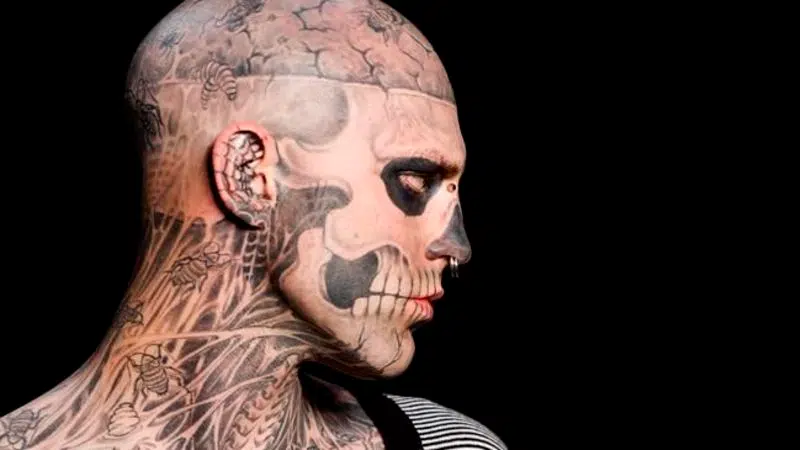
Montreal artist known as Zombie Boy died accidentally, Quebec coroner rules
MONTREAL — The death of a tattooed Montreal artist and model who shot to international fame for dancing in Lady Gaga’s “Born This Way” video was accidental, a Quebec coroner ruled Monday.
Rick Stephan Genest, known as Zombie Boy, was found dead at the foot of a Montreal apartment building on Aug. 1, 2018.
Coroner Melissa Gagnon told a news conference the 32-year-old had gone out on a third-floor balcony alone to smoke a cigarette and went over the railing.
She said Genest’s blood alcohol level was almost three times the legal limit for driving at the time of his death, but he did not seem to be in a state of psychosis or delirium.


